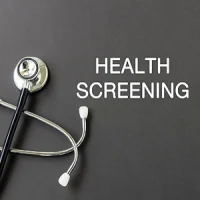Cardiovascular disease continues to be the leading cause of death worldwide. Over the years, scientific research and technological advancements in heart disease and stroke science have had a positive impact on the diagnosis and treatment of cardiovascular disease.
Here is a quick overview of the biggest scientific victories achieved in 2019, as determined by The American Heart Association, one of the top funders of heart- and stroke-related research worldwide:
Pulmonary Hypertension
This used to be a rare condition that has recently become more common. New research in 2019 has helped reveal how pulmonary hypertension works. One study found that patients with pulmonary hypertension had lower than normal levels of a protein known as BMP9. Another study explained how a gene that provides protein production instructions could potentially play a critical role in the disease.
Familial Hypercholesterolaemia
This is a condition where people are born with high levels of LDL, thus increasing their risk of heart attacks at an early age. In 2019, a long-term study examined if cholesterol-lowering statins could help children with this condition. It was found that this treatment approach could reduce the incidence of cardiovascular events from 26% to 1% at age 39, and the incidence of death from cardiovascular causes from 7% to 1% at age 39.
Physical Activity
It has long been established that physical activity is the key to good cardiovascular health for people of all ages. Two studies in 2019 conducted with older women found that reducing sedentary time by even an hour each day resulted in a 26% lower risk of heart disease and a 12% lower risk of cardiovascular disease overall. Another study found that women who engaged in light physical activity (gardening, walking) had a 42% lower risk of heart attack or coronary disease as compared to least-active women.
Blood Pressure
New research showed that people who took that patients who took their blood pressure medicine at bedtime had a 45% lower risk of heart attack, stroke, and/or other cardiovascular problem. Another study demonstrated that lowering systolic blood pressure to less than 120 mm Hg lowered the risk of mild cognitive impairment, as compared to a target of less than 140 mm Hg.
Secondhand Smoke
A new analysis found that children exposed to secondhand smoke from their parents were at a higher risk of atrial fibrillation. For every pack-a-day increase in smoking by the parents, the risk of developing atrial fibrillation among the children increased by 18%.
Gestational Diabetes
A study conducted with African-American women showed that women with gestational diabetes were more likely to have coronary artery disease and were also more likely to have Type 2 diabetes.
Practice-Changing Findings
There were several other practice-changing findings in 2019 that pave the way for better treatment approaches in the years to come. These include:
- The use of icosapent ethyl, approved by the FDA, to reduce the risk of cardiovascular events among patients with elevated triglyceride levels.
- Clearing multiple arteries entirely reduced the risk of another heart attack by 32% as compared to patients who were treated with only clearing the blocked artery.
- Using dapagliflozin to treat people with Type 2 diabetes as it can keep heart failure from worsening and also reduce the risk of death from overall cardiovascular causes.
- Using the Apple Watch to warn about atrial fibrillation as it accurately detected the condition in more than one-third of study participants in the Apple Heart Study.
- In the case of an ischaemic stroke, injecting clot-busting medication alteplase can help some patients even if they receive the medication up to 9 hours after symptoms begin.
- People with severe aortic stenosis at lower surgical risk and when treated with TAVR had lower odds of stroke, rehospitalisation, and death, compared to patients who had traditional surgery.
Source: American Heart Association
Image Credit: iStock
Latest Articles
Stroke, diabetes, heart attack, statins, TAVR, cardiovascular disease, cholesterol
American Heart Association's overview of the biggest scientific victories achieved in cardiovascular disease in 2019.










